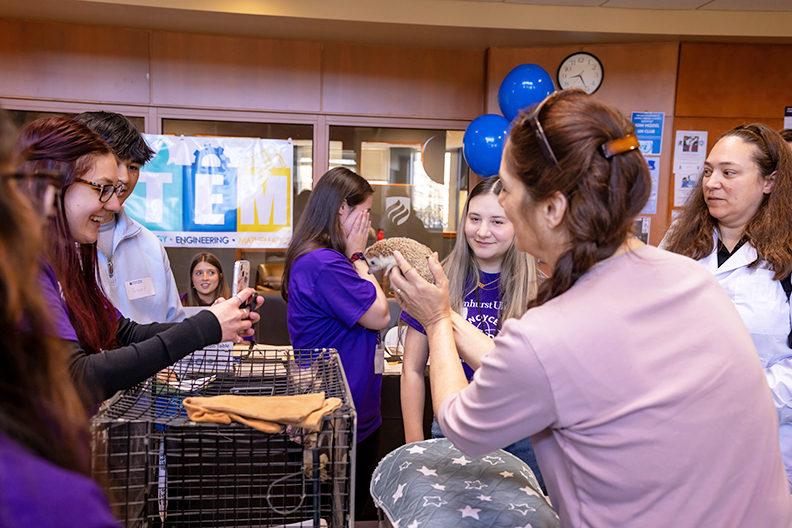 Teacher shortages are a critical issue across the country. According to a 2022 U.S. Department of Education report, 41 states are facing shortages in at least one subject area or grade level, and the shortage is especially acute in STEM fields.
Teacher shortages are a critical issue across the country. According to a 2022 U.S. Department of Education report, 41 states are facing shortages in at least one subject area or grade level, and the shortage is especially acute in STEM fields.
In fact, the number of new teachers earning science education certificates fell by nearly half from 2011 to 2021, even as students are urged to take more science, technology, engineering and math courses.
Faculty in Elmhurst University’s School of Education have been addressing the STEM teacher shortage in a variety of ways, including by hosting programs to spark interest in STEM subjects among high school students; offering scholarships and support to college students who might be interested in becoming STEM teachers; and inspiring current teachers, both new and veteran, with professional development and community-building opportunities.
Next week, the University will host a two-week, immersive STEM Academy for rising junior and senior high school students. This year’s summer program, “Engaging the World Through STEM to Create Equity,” provides an opportunity for students to sharpen their math skills, develop their scientific knowledge, make new friends and explore what STEM teaching careers look like.
“It’s about STEM but for the whole child, and it’s also about preparing students to think about their options within STEM and to consider teaching as a viable career opportunity,” said Theresa Robinson, associate professor of education. “So we’re building not only a STEM career pipeline but also a STEM teaching pipeline.”
The STEM Academy and other programs are sponsored by a $1.3 million grant that is helping Elmhurst University continue to develop the STEM teachers of the future. The Promoting Inclusiveness and Diversity in Education (PRIDE) program is funded by the National Science Foundation’s Robert Noyce Teacher Scholarship Program. The grant enhances Elmhurst’s well-rounded curriculum, enabling students to develop a versatile skill set and become creative problem-solvers.
The project addresses the teacher shortages in Illinois, Indiana and Wisconsin, all states in which Elmhurst places graduates of its STEM education programs. The project also aims to expand racial, ethnic, gender and linguistic diversity in STEM classrooms.
The grant provides Noyce Teacher Scholarships to Elmhurst students who want to become teachers, supporting them as they earn a degree in biology, chemistry, math or physics, as well as in secondary science education. In addition to recruiting and preparing STEM teachers, the grant established a program for Noyce graduates that offers support and resources during the early years of their teaching careers.
The University has partnered with two high school districts (Fenton High School District 100 and Leyden High School District 212) and two community colleges (College of DuPage and Harper College) to recruit and graduate STEM teachers during the five-year grant period.
Earlier this spring, the grant sponsored the STEM-tastic Teaching Conference for primary, intermediate and high school teachers, administrators and community members. STEM professionals from the Museum of Science & Industry and other companies and organizations, master teachers and other educators showcased best practices in STEM teaching and offered resources and inspiration to both practicing and pre-service teachers.
“We really wanted to create a community of learners for our Noyce scholars,” said Debbie Cosgrove, co-principal investigator of the PRIDE project. “The STEM-tastic Teaching Conference was the first time a lot of these students could interact with master STEM teachers, and they could see what successful practice looks like.”